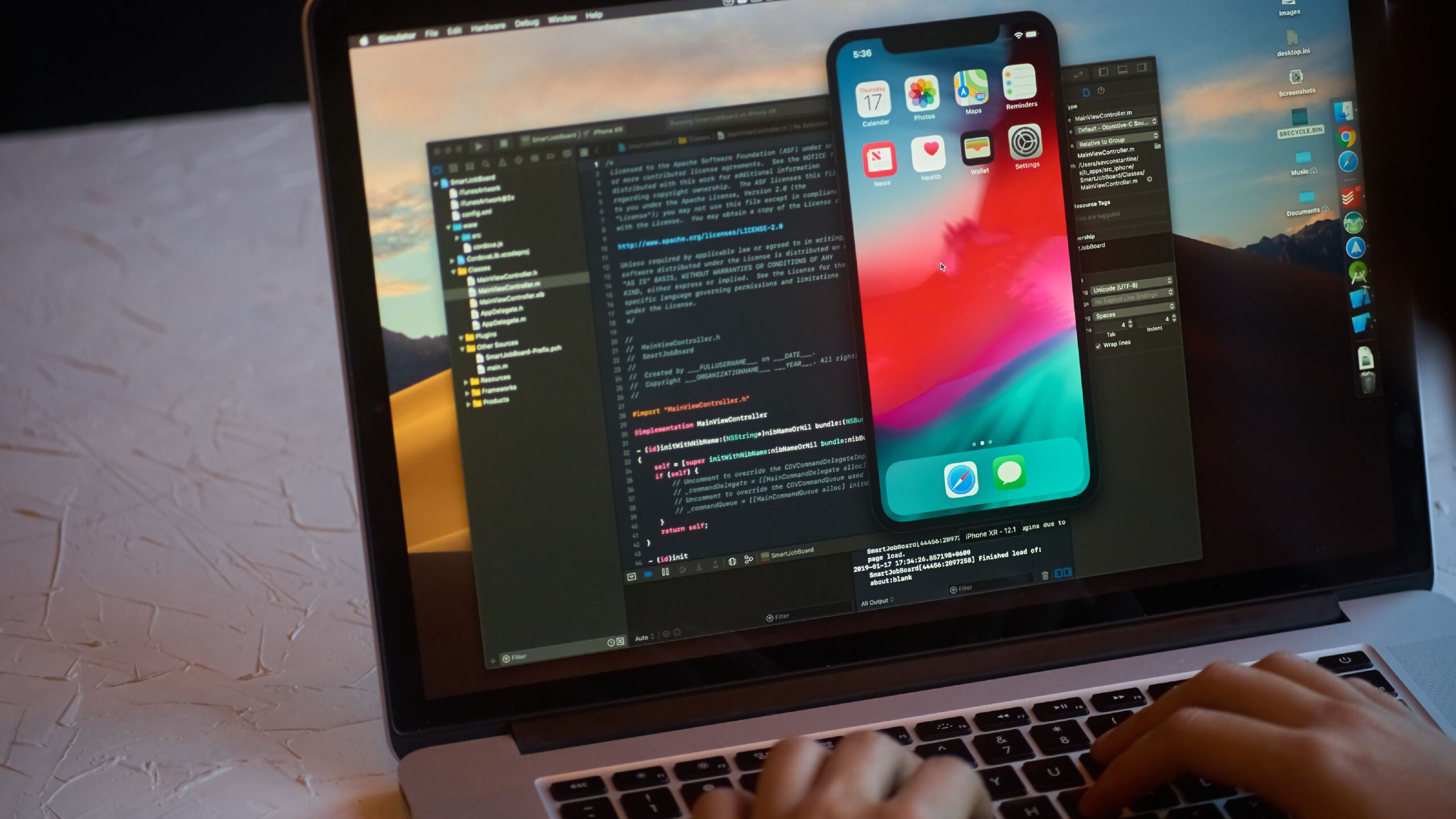Proving Damages in a Thermonuclear War
Last Friday, Judge Richard Posner dismissed a major case in the thermonuclear war that Steve Jobs declared against Apple’s competitor, the Android phone. In this case, Apple was fighting Motorola Mobility, who fought back with its own patents. The trial to determine whether the patents were valid and infringed was supposed to take place this week, but Judge Posner issued a final order last Friday, dismissing the claims and counterclaims with prejudice, meaning they cannot be filed again.
This is not just another skirmish in the never-ending smartphone patent wars. This was extraordinary because it was decided not by an ordinary trial judge but appellate judge Richard Posner sitting as a trial judge by designation. And Posner is not just an appellate judge but one of America’s leading public intellectuals, author of voluminous highly regarded books and scholarly articles, a leader of the law and economics movement, and the co-author of The Economic Structure of Intellectual Property Law. In fact, he was counted as the most cited legal scholar of the 20th Century.
Based on a hearing held in May, the judge concluded that neither side could prove any damages or make the case for an injunction, so there was no point in going through an expensive trial to determine the validity of the patents and whether or not they were infringed. With regard to Apple’s claims…
Apple has never contended that these benefits to Motorola of infringement cannot be quantified. It merely has failed, despite its vast resources and superb legal team, to do so in a minimally acceptable manner—failed whether because of mistakes in trial preparation (which even the best lawyers can make), or because too many cooks spoil the stew (Apple is represented by three law firms in this litigation), or maybe because the infringements did not deprive Apple of any profits…
Indeed, the patents at issue are far removed from the rich, integrated, well-designed products that have made Apple successful in the market.
Apple wanted me to allow into evidence media reports attesting to what a terrific product the iPhone is. I said I would not permit this because the quality of the iPhone (and of related Apple products, primarily the iPad) and consumers’ regard for it have, so far as the record shows, nothing to do with the handful of patent claims that I had ruled presented triable issues of infringement.
Some reports have wrongly interpreted this ruling as a technicality. But in fact it goes to the heart of what is wrong with patent system. It has turned the ingenuity behind information technology into legal weaponry. The fact that a smart phone includes tens or hundreds of thousands of possibly patentable functions is not the fault of the technology, it is the fault of a patent system that allows for legions of patents that have virtually no value in themselves except as lottery tickets or land mines for disabling opponents. By demanding that Apple and Motorola make a solid case for the damages that might be incurred by the alleged infringement of a handful of possibly valid patents, Posner focused the case on economic reality rather than the rhetoric and posturing characteristic of patent disputes. Most trials begin with the latter followed by elaborate jousting by lawyers over validity and infringement – and only if the patent is found valid and infringed are damages calculated.
Posner makes it clear that showing real damages is essential. He rejects any after-the-fact hold-up value of patents in favor of what a knowledgeable licensee would have paid in an informed transaction before the technology is used – instead of designing around the patent. This is essentially the standard endorsed by the Federal Trade Commission last year in its landmark report, The Evolving IP Marketplace.
As Posner notes, Apple’s market cap exceeds that of Google and Microsoft combined. Apple is a great company that makes great products. Steve Jobs was a brilliant innovator. But his endorsement of thermonuclear warfare stands as black mark on his reputation – an extreme rejection of the Silicon Valley culture that nourished him and many others. The new thermonuclear Apple has done more than its share to set the patent lottery in motion. It has collaborated with other industry heavyweights to establish the Rockstar Consortium, a giant troll playing a zero-sum game of gotcha against the entire industry. It’s not just about making money, it’s about raising costs for rivals — making strategic use of the system’s problems for competitive advantage. Creating or collaborating with trolls is a new game – “privateering” – which allows big producing companies to do indirectly what they will not do directly for fear of counter assertions.
In May, PTO Director David Kappos told Congress that the patent wars were a sign of robust innovation:
I don’t think there is any reason to believe that either copyright or patent lawsuits of the kind that we’re seeing in the so-called smartphone wars are a sign of stifling technological innovation. In fact, much to the contrary, we’ve seen this movie before. We’ve seen this movie many times before.
Yes, there is a lot of innovation going on – in spite of patent litigation. And yes, there have been instances of high-profile patent litigation, some of it pretty ugly.
But no, this is not a movie. And no, we have not seen it before. We have not seen this repeated, multi-venue, global-scale multiplayer assertion and counter-assertion before. For years the IT sector (and its customers) enjoyed freedom of action through cross-licensing, non-assertion agreements, and fear of mutually assured destruction.
To be sure, we have seen patent trolls before, too. But never on this scale. Earlier this week, economists James Bessen and Michael Meurer released a new study of the direct costs of patent trolls, which they found to be $29 billion/year. Last September, they released a study indicating aggregate costs of $80 billion/year in market value for public companies alone. The new study indicates that a disproportionate burden is borne by small and medium sized companies.
The tech sector, including Apple, grew up in a culture of collaboration and competition – Silicon Valley — that remains emblematic of transformative innovation the world over. The behavior that we see today is cynical, value-destructive, and lawyer-driven in the worst way. It feeds on itself and becomes institutionally embedded and self-justifying. It’s okay to do because it’s being done to you. Privateering is becoming standard practice, rationalized within the patent world as adding to the patent incentive and the scope of patent markets. And of course, there is plenty of precedent – it’s what governments did to legitimize piracy on the high seas.
Patent privateering is unquestionably innovative – an unprecedented combination of the IT-invigorated patent troll and the thermonuclear warfare of Steve Jobs. Mr. Kappos and others may belittle the elements as reruns, but this is the grotesque face that the U.S. patent system now offers to the world. This is the same world to which we are trying to export our ideals and institutions as “best practice.” The same world in which the US Government is $16 trillion in debt with a habit of denying, deferring, and politicizing difficult problems. The same world in which the company initiating thermonuclear war has a market cap of $500 billion and cash reserves (before its recent dividend) of $95 billion.
Mr. Kappos is a brilliant USPTO director, perhaps the best we have had, but his world is a community of professionals that thrives on patent volume and litigation – and he must operate inside the box. Mr. Posner, an intellectual property scholar and a judge for life, is free to look at the big picture:
The institutional structure of the United States is under stress. We might be in dangerous economic straits if the dollar were not the principal international reserve currency and the eurozone in deep fiscal trouble. We have a huge public debt, dangerously neglected infrastructure, a greatly overextended system of criminal punishment, a seeming inability to come to grips with grave environmental problems such as global warming, a very costly but inadequate educational system, unsound immigration policies, an embarrassing obesity epidemic, an excessively costly health care system, a possible rise in structural unemployment, fiscal crises in state and local governments, a screwed-up tax system, a dysfunctional patent system, and growing economic inequality that may soon create serious social tensions. Our capitalist system needs a lot of work to achieve proper capitalist goals.
Emphasis added.








